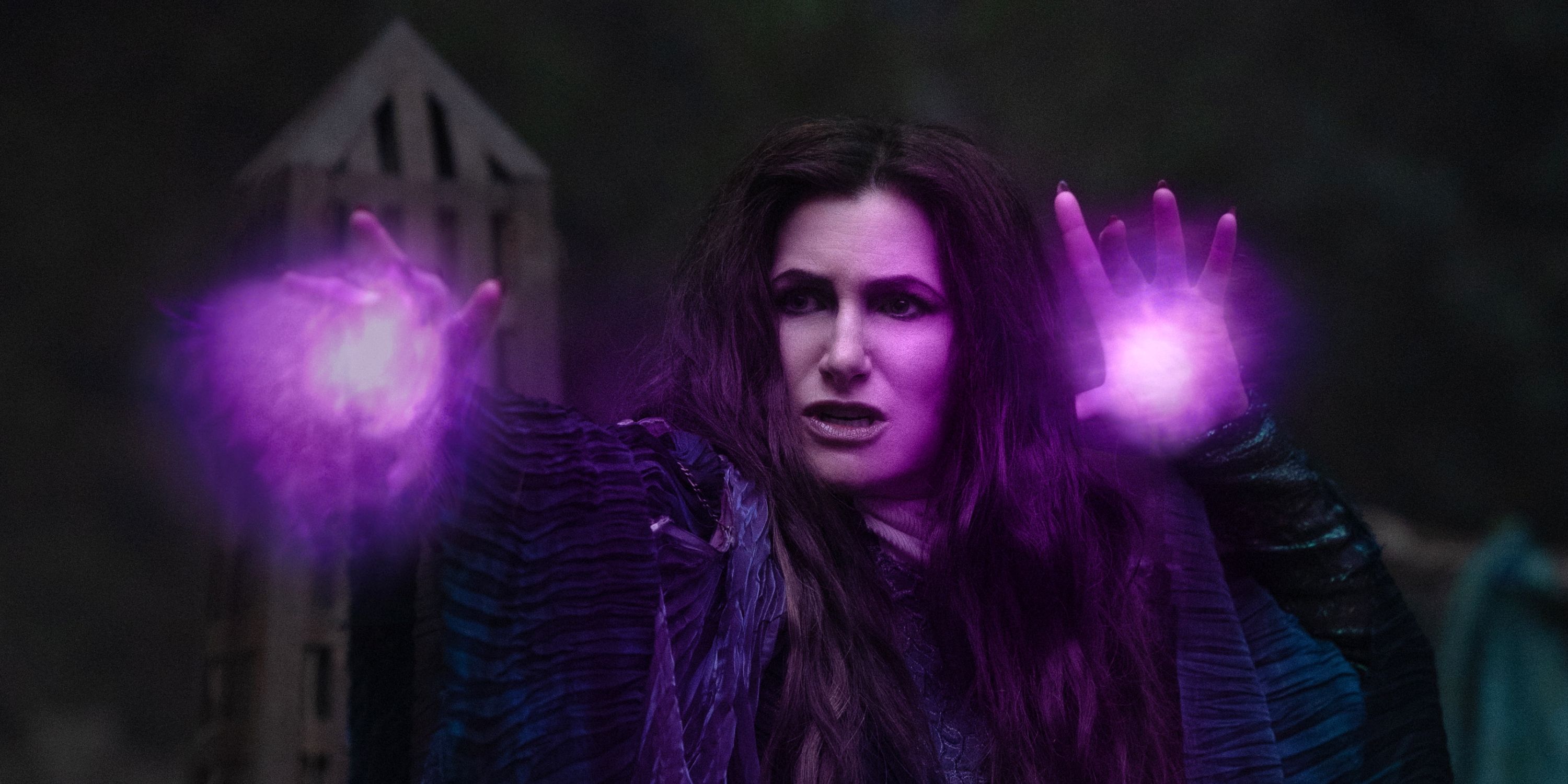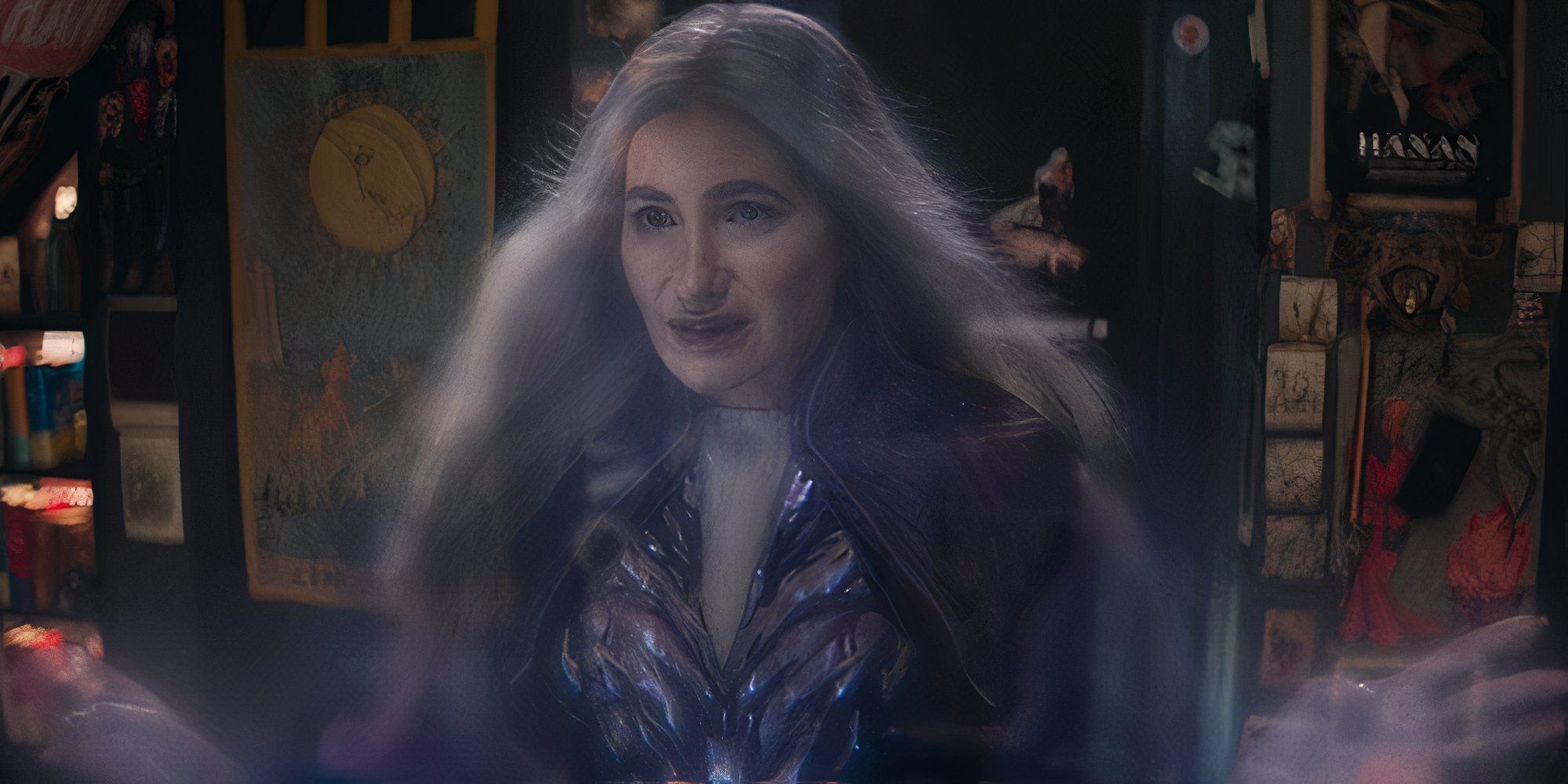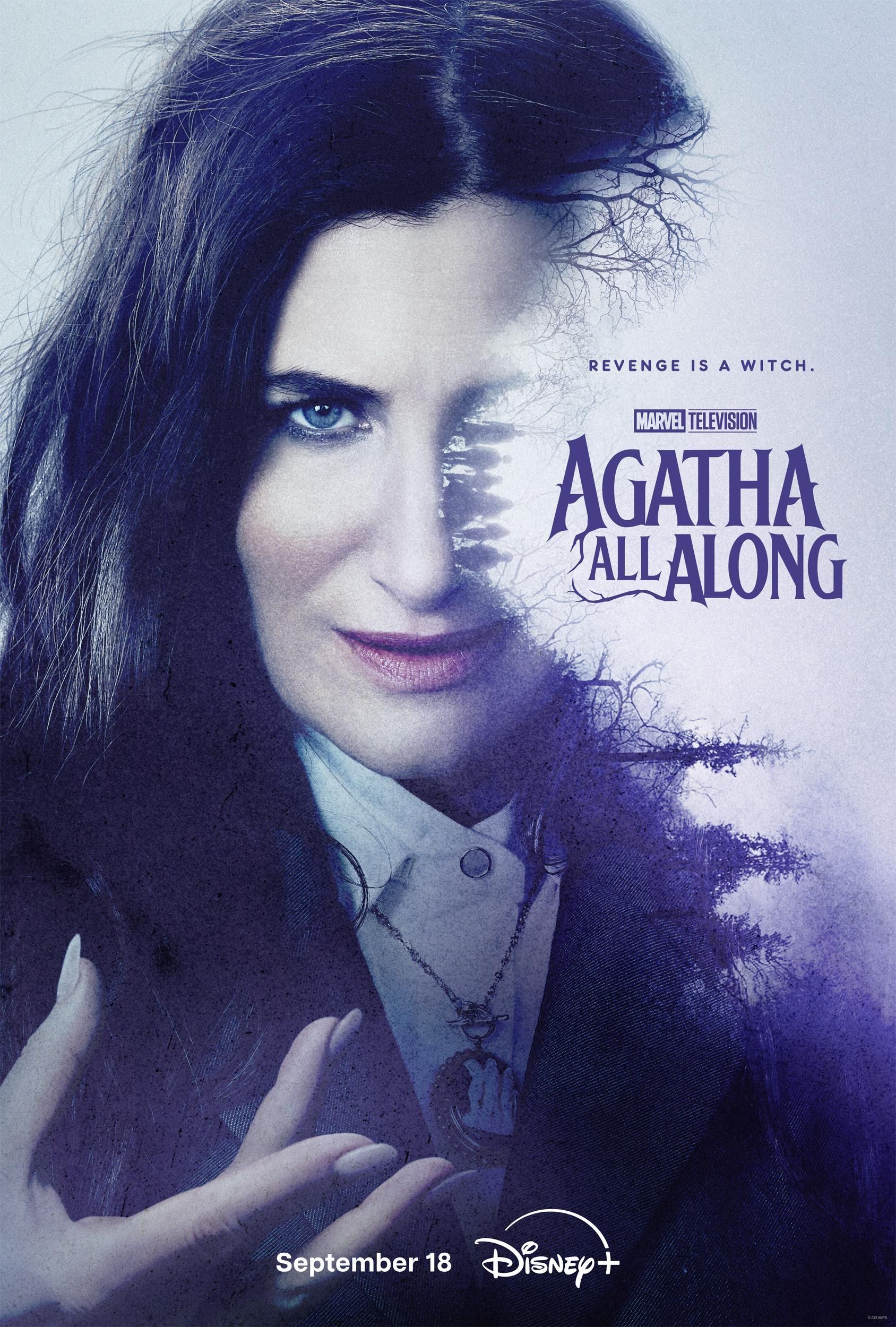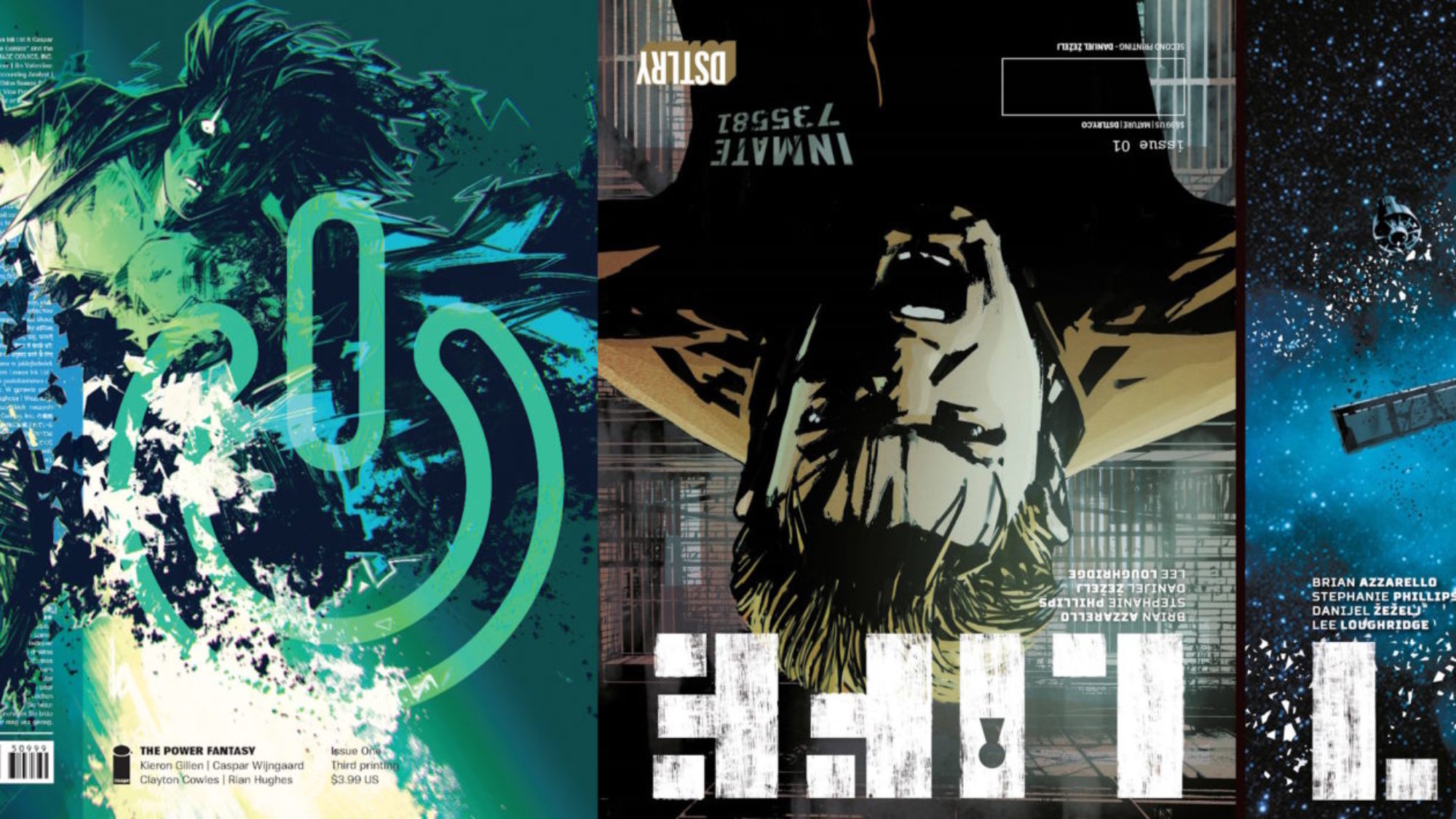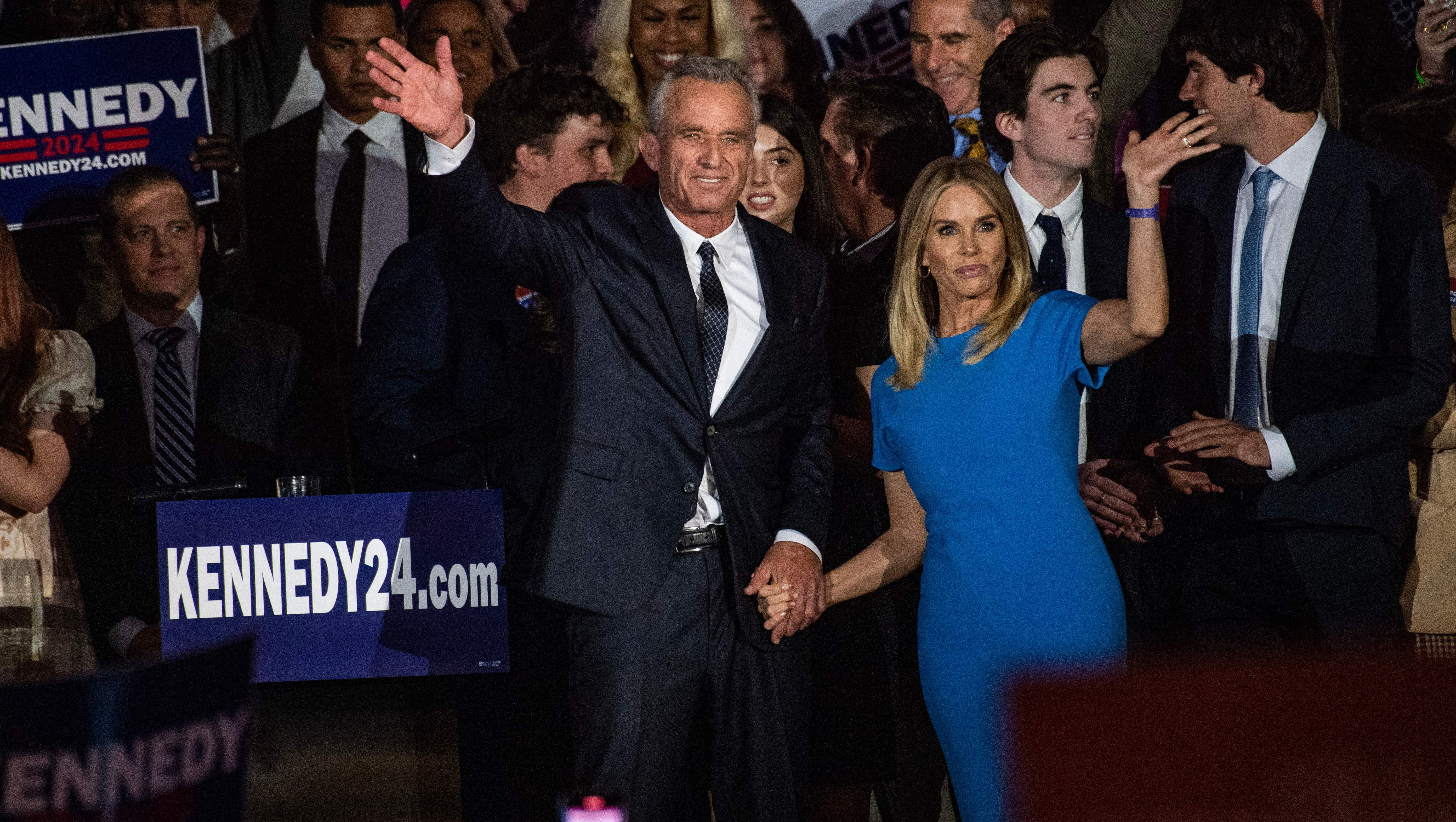Editor’s note: The below contains spoilers for Agatha All Along Episodes 8 and 9.
Between her gleeful cackling, metaphorical mustache-twirling, and remarkably catchy theme song, Agatha Harkness (Kathryn Hahn) was undoubtedly the villain of WandaVision: a self-serving cheat who lied as easily as breathing, killed without remorse, and winked at the camera with a relish enticing enough to tempt us into becoming her cohort-in-crime. Trusting her would guarantee our swift demise, but at least it’d be a delightful and self-aware way to go — especially since villains are the one character archetype I was born to love. Good drama necessitates conflict, and nothing creates quality conflict faster than a multifaceted antagonist with good reasons (in their mind, at least) to oppose the hero. Beyond that, it’s human for us to enjoy the function they serve; villains are often a potent combination of frightening, fun, and stylish, as well as a convenient space to explore difficult topics.
In Agatha’s case, not only do all of the above apply (have you seen some of those costumes?), but as something of a villain connoisseur, I always knew there was more to my purple sorceress than just glinty-eyed sadism — a conviction showrunner Jac Schaeffer has vindicated via Agatha All Along‘s final episodes. Of course, characters who are evil for evil’s sake are immensely entertaining; modern media tends to saddle antagonists with unnecessary redemption arcs that water down a character’s straightforward appeal, not enhance it. But when done right, infusing a villain with redeeming qualities makes them more compelling. Unspeakably heinous acts and relatable human tenderness — like love, insecurity, and loneliness — needn’t cancel out one another. Agatha Harkness isn’t an antiheroine quite yet, but her profoundly tragic story proves that she’s always been legions more than just a one-dimensional bad girl.
Agatha Harkness’ Backstory in the ‘Agatha All Along’ Finale Is Human and Moving
After WandaVision, it’s easy for us to take the worst rumors about Agatha’s character at face value: that she traded her own flesh and blood for the untapped powers of the Darkhold. The truth is far simpler and more wrenching for that striking restraint. Across its nine-episode run, Agatha All Along has achieved a villain-as-protagonist hat trick: expanding a minor player into the main character without sacrificing her bite or condoning her noxious traits, but never losing sight of how much the world has scarred Agatha.
To start, Episode 5 all but confirms that her mother, Evanora Harkness (Kate Forbes), was abusive; Evanora’s ghost claims her daughter is an abomination who should have died at birth, and her cruel presence terrifies Agatha out of her normal laissez-faire theatricality. We don’t know why Agatha’s first and only traditional coven tried to execute her in the 1600s, but with the benefit of hindsight, it’s not a massive leap to assume that Evanora’s hatred was a contributing factor. Regardless of Agatha’s culpability at that point in her life, a group of women who should be her protectors tied the young woman to a tree and ignored her pleas — both for mercy and magical guidance. All they taught her was fear and mistrust.
Years later, Agatha tells her son, Nicholas Scratch (Abel Lysenko), that she murders witches to survive. In what feels like a cruel twist of fate, draining their powers seems to be Agatha’s only natural ability. Witches are communal, but everything (including Agatha prioritizing her own survival) conspires against her, turning her into an isolated, coven-less witch. That makes Nicky, her “made from scratch” miracle, and the tenderly loving coven of two they form together, even more precious. Agatha Harkness is a woman whose greatest loves are the doomed son with whom she was never allotted enough time, and the embodiment of Death (Aubrey Plaza). When not dashing into Rio’s arms for the thrill of it, she’s been fleeing from death her entire life, cherishing her time with Nicky because she knows every second is a stolen one. Agatha exists in the MCU, a universe where death is easily rectified, but she loses her son to the same inescapable force that claims every living being. It doesn’t matter how much magic she devours; her restrictive skill set can’t protect her child.
‘Agatha All Along’ and ‘WandaVision’ Confront the Messy Realities of Grief
Once Agatha loses Nicky to the inevitable, her last scrap of decency perishes with him. Instead of finding a different way to live that honors Nicky’s tender heart, she lashes out in an endless cycle of death that’s both ravenous and empty, because no coping mechanism can fill the hole in her heart. Agatha pouring her anguish into decades of mass murder isn’t catharsis; it’s soul-rotting trauma, and a metaphor for the atrocities we inflict upon ourselves and one another while in its clutches. What’s more, it can’t be mere coincidence that Agatha targets witches who wield magic that could have saved Nicky’s life: potions, protection, divination, and green. After Episode 9, Agatha isn’t just Wanda’s villain, but her mirror — a call-and-response of overwhelming grief.
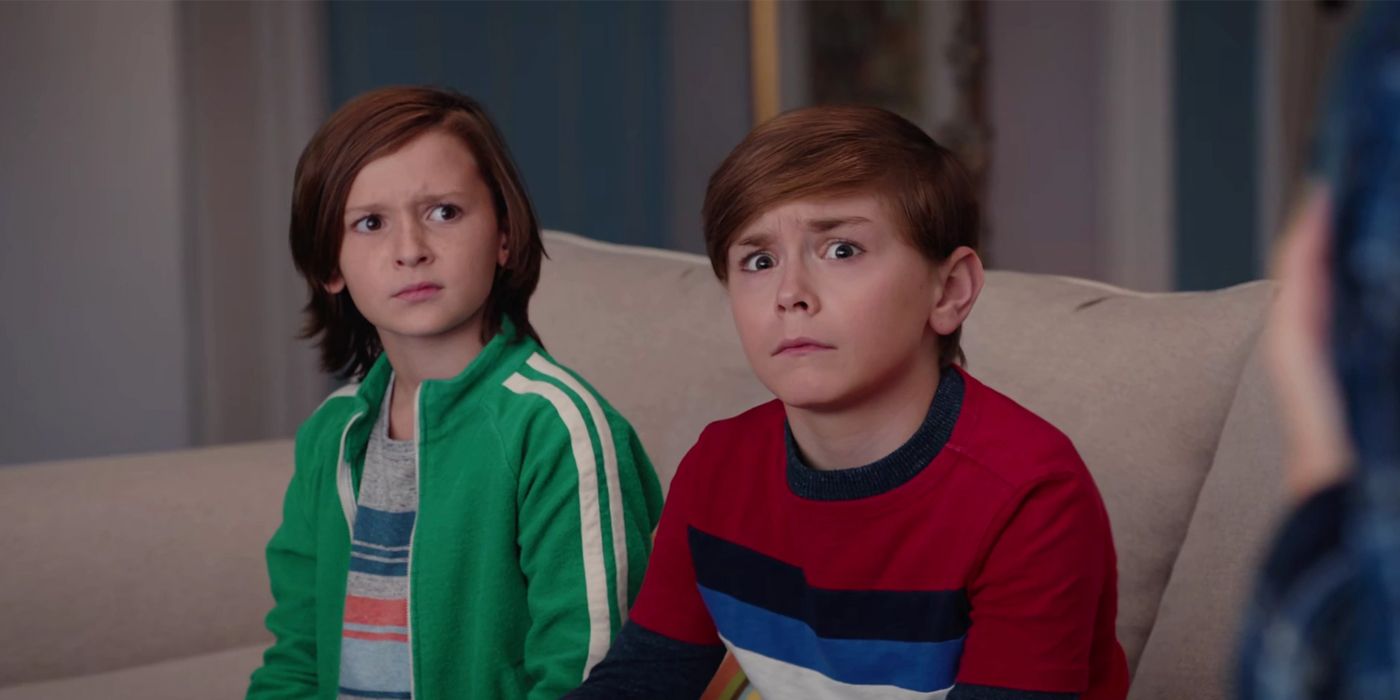
Related
How Tommy Maximoff Can Come Back in the MCU, Based on the Comics
What happens to Wanda’s other son?
By constantly carrying Nicky’s hair in a brooch and repurposing his innocent song into an anthem that’s lived for the centuries he was denied, Agatha carries her greatest scar in open view. She joyfully embraces her role as a wicked witch, and it’s a fitting ruse both for a con artist and a survivor constantly clawing her way out of tight corners. Her earnest moments are rare — but Hahn’s tour-de-force performance is like a locked vault slowly cracking open under strain. Her bitter, rueful, and resigned expressions palpably show how deeply the other characters’ distrust still cuts, even after centuries of rejecting ambiguity and responsibility.
Agatha Harkness Isn’t Redeemed, but She’s Far From a Villain
Naturally, Agatha’s arc for this specific series culminates with her sacrificing herself for Billy Maximoff (Joe Locke), the boy who reminds her of Nicky. She fulfills what she couldn’t do for her son, but Agatha isn’t redeemed even by half. It takes Billy invoking Nicky’s name for Agatha to risk her Kiss of Death maneuver, one that lets her warp her deal with Rio enough to spare Billy’s life and become a ghost. She’s kept surviving this long out of spite and because she’s too ashamed of herself to reunite with her son — and she only admits the latter truth to Billy when she has nothing left to lose except his fragile affection.
Those decisions might be a future catalyst for Agatha, should she arrive at a truly redemptive crossroads. There’s also every chance she’ll keep nurturing and protecting Billy in morally gray ways, because that’s where Agatha Harkness thrives. She’s a sly, stubborn, grieving witch who defies both the odds and “the hero/villain binary,” and we adore her for it. Objectively, it’s difficult to say that Agatha deserves (harmless) happiness after her countless crimes. On the other hand, the Witches’ Road restores what she needed most: her precious coven of two. They could never make me hate you, Agatha, even if you were just a delightfully despicable villain. In the hands of Jac Schaeffer, you’re exactly what I hoped for — a deeply complex woman who’s more than an “only,” with the capacity for even more.
Agatha All Along is available to stream on Disney+ in the U.S.
Watch on Disney+

